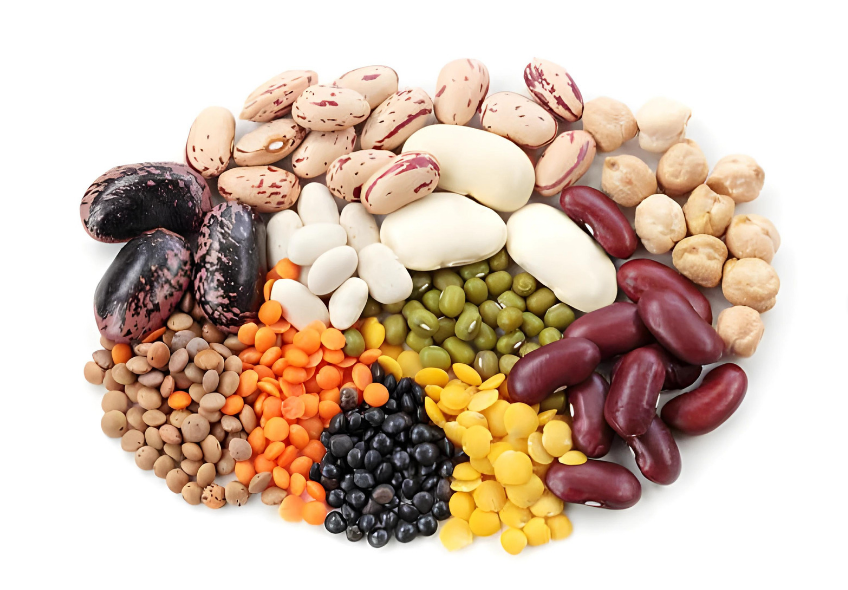Joint Health, What to Eat and Drink
What’s the Diet for Rheumatoid Arthritis?
As health and wellness enthusiasts, we understand how nutrition may have a significant impact on managing chronic diseases, including Rheumatoid Arthritis (RA). In this article, we will begin on a journey to discover the best diet for rheumatoid arthritis, combining scientific research with practical insights to help people on their way to wellness.
From investigating the anti-inflammatory characteristics of specific foods to identifying potential triggers, we hope to provide concrete techniques for improving joint health and alleviating RA symptoms. So, if you’re ready to use nutrition to help you manage your rheumatoid arthritis, let’s get started and learn about the transformative power of a well-balanced diet.

Diet will not cure rheumatoid arthritis (RA), but it can help by reducing inflammation in the body, supplying nutrients, and helping you maintain a healthy weight. This is significant because excess weight increases pressure on achy joints and can make certain RA medications less effective. Furthermore, body fat creates proteins known as cytokines, which cause inflammation.
Anti-Inflammatory Foods
According to studies, persons with RA benefit from a Mediterranean diet rich in fruits and vegetables, whole grains, and healthy fats. Here are some foods you should eat.
Healthy Fats
Introducing fatty fish to your diet is a strategic move against inflammation and joint pain in Rheumatoid Arthritis.
Salmon, tuna, sardines, and herring are well-known for their high omega-3 fatty acid content, making them true superfoods for people dealing with arthritis. Omega-3 fatty acids have strong anti-inflammatory capabilities, which help to control the inflammatory cascade associated with RA and enhance joint health.
Maintaining a healthy balance of omega-3 and omega-6 fatty acids is critical, as studies have found a link between an elevated omega-6 to omega-3 ratio and an increased risk of chronic inflammatory disorders such as RA. As a result, lowering omega-6 fatty acid consumption—which is typically found in meats, certain oils, and processed foods—while increasing omega-3 intake is critical for reducing inflammation and promoting general health.
By incorporating fatty fish into your diet, you not only reap the therapeutic benefits of omega-3 fatty acids, but also go on a journey toward proactive RA care based on inflammation control and nutritional balance.
Nuts
Nuts, which contain healthy monounsaturated fat, are known for their heart-protective characteristics and essential minerals. Try pine nuts, pistachios, hazelnuts, or almonds. Walnuts are especially beneficial to persons with RA because they contain high levels of omega-3 fatty acids. (Ground flaxseed is another excellent plant source of omega-3s.) However, don’t go overboard with nuts; they contain good fats but are also high in calories.
Fruits and Vegetables
In the context of rheumatoid arthritis (RA), include a variety of fruits and vegetables in your diet is more than just a dietary guideline; it is a powerful strategy for reducing inflammation and promoting joint health. These antioxidant-rich foods have an important role in neutralizing free radicals, which contribute to the inflammation and cellular damage associated with RA.
Furthermore, the vitamins, minerals, and polyphenols present in fruits and vegetables have been linked to reduced levels of C-reactive protein (CRP), a critical marker of inflammation in the body.
To optimize health advantages, choose a rainbow-colored mix of fresh or frozen fruits, keeping an eye out for added sugars in processed options. Similarly, choose a variety of veggies to increase nutrient intake. The recommended daily intake is two cups of fruits and two and a half to three cups of vegetables, with adjustments made based on activity level. For people with RA, this dietary recommendation not only improves general health but also acts as a foundation for reducing inflammation and maintaining joint health.

Ginger
Ginger, like onions, contains chemicals that operate similarly to anti-inflammatory medications like aspirin and ibuprofen. This adaptable root also provides flavor. Add fresh peeled ginger to stir-fries, eat pickled ginger with salmon sushi, or purée it and mix it into acorn squash soup.
Ginger supplements can also help reduce inflammation, but it is important to consult your doctor first. Too much ginger can cause blood thinning, which is problematic if you take certain medications, such as warfarin (Coumadin). It can also lower blood sugar levels, which increases the risk of hypoglycemia. Furthermore, ginger may lower blood pressure, which may be beneficial to patients using high blood pressure medication.
Whole Grains
The incorporation of whole grains in your diet emerges as a cornerstone of holistic treatment, providing a diverse approach to inflammation control and overall cardiovascular health. Embracing mainstays such as oats, whole wheat, brown rice, and quinoa not only provides a tasty variety of options, but it also has the ability to lower levels of C-reactive protein (CRP), a major inflammatory marker associated with RA.
Aside from their anti-inflammatory qualities, whole grains include a variety of minerals and fiber, outperforming processed equivalents in nutritional content. Given the increased risk of heart disease among RA patients, the cardiovascular advantages provided by whole grains are especially remarkable, making them an essential component of a heart-healthy diet. When choosing grain-based products, carefully read the labels and prioritize those that clearly state whole grains as the principal ingredient.
By choosing whole grains over refined alternatives, you not only avoid harmful additives such as added sugars and saturated fats, but you also fortify your dietary arsenal with wholesome, nutrient-dense options that work together to support your journey toward optimal health and well-being amidst the complexities of rheumatoid arthritis.

Dietary Supplements
Fish Oil
In managing rheumatoid arthritis (RA), understanding the role of omega-3 fatty acids in alleviating symptoms is paramount. While supplements are typically recommended only to address specific deficiencies, obtaining omega-3s through food sources like fatty fish and algae is preferred. These sources provide essential EPA and DHA, crucial for combating inflammation.
The Mediterranean diet, rich in omega-3-rich foods like sardines and salmon, offers a holistic approach to incorporating these beneficial fats into your diet. However, precautions are necessary to avoid mercury and pollutants found in certain fish species.
Vegetarians can opt for algae, nuts, and seeds as alternative sources. Consulting a doctor before supplementing is essential, especially considering potential interactions with medications. Research indicates that higher EPA levels correlate with improved RA outcomes, emphasizing the potential of omega-3s in symptom management.
While fish oil supplements can take time to yield results, adherence to recommended doses and quality standards is vital for efficacy and safety. Ultimately, integrating omega-3-rich foods into your diet, alongside medical treatment, offers a promising avenue for RA management and improved quality of life.
Iron
Paying attention to your iron levels is critical in the setting of rheumatoid arthritis (RA), especially if you are suffering from iron-deficiency anemia, which is a common coexisting illness in RA patients. Iron is essential for several physiological activities, such as oxygen transport, energy metabolism, and immunological function. However, chronic inflammation caused by RA can affect iron homeostasis, resulting in reduced iron absorption and use, predisposing individuals to iron insufficiency. Iron deficiency anemia causes weariness and lethargy, worsening the already difficult symptoms of RA.
In such circumstances, iron supplementation may be necessary to rebuild depleted stores and alleviate symptoms associated with anemia. However, it is critical to contact with a healthcare practitioner before starting iron supplementation, as high iron intake can have negative consequences and may not be appropriate for all people with RA. Addressing iron deficiency proactively not only reduces the severe effects of anemia, but also improves your body’s resilience in dealing with the numerous problems of rheumatoid arthritis.
Vitamin D
Maintaining proper vitamin D levels is critical for bone health and lowering the risk of RA problems. Vitamin D aids calcium absorption, which is essential for maintaining bone density and integrity. Given the increased risk of bone loss and osteoporosis in RA patients, maximizing vitamin D levels is critical for maintaining skeletal health and minimizing the risk of fractures.
Furthermore, current research suggests that vitamin D may have immunomodulatory effects, which could influence the inflammatory processes involved in RA development. However, people with RA frequently have vitamin D deficiency due to variables such as limited sun exposure, reduced absorption, and medication interactions.
As a result, regular vitamin D level monitoring and supplementation as needed are critical for supporting bone health and overall well-being in people dealing with rheumatoid arthritis. Working collaboratively with healthcare providers to develop supplementation regimens and ensure appropriate vitamin D status is critical for improving treatment outcomes and reducing the skeletal problems associated with RA.
Before taking any supplements, however, contact with your healthcare professional to ensure that they are appropriate for you and will not have any negative effects when combined with your medications.
Vitamin C
Vitamin C is a dietary component required for collagen synthesis, which aids in the formation and repair of blood vessels, tendons, ligaments, and bone, making it beneficial to persons suffering from osteoarthritis, according to Sandon.
Aim for 75 milligrams (mg) of vitamin C per day for women and 90 mg per day for men, which is the current U.S. recommended dietary limit. If you’re pregnant, strive for 85 mg; if you’re breastfeeding, aim for 120 mg.
Citrus fruits, such as oranges, grapefruit, lemons, and limes, are high in vitamin C and contain inflammation-fighting antioxidants, which are beneficial to people with rheumatoid arthritis. Citrus, on the other hand, may impair the body’s capacity to digest certain RA drugs, including oral cyclosporine and, possibly, methotrexate. Research has shown that drinking grapefruit juice on a regular basis inhibits the protein CYP3A4, which helps the body metabolize cyclosporine; other studies have suggested that other citrus juices, such as those made from Seville oranges, limes, and pomelos, may also affect how CYP3A4 works in the body.
If you’re taking medications that can be impacted by citrus, Sandon suggests getting your vitamin C from alternative sources like tomatoes, peppers, melons, strawberries, kiwi, or potatoes. According to the National Institutes of Health, a half cup of cooked broccoli contains more than half of the daily recommended dose of vitamin C.
Vitamin A
Include carrots, squash, and sweet potatoes in your anti-arthritis grocery list. These and other orange-colored vegetables are high in vitamin A and beta-carotene, which are thought to help prevent inflammation. Cooking appears to improve the availability of these chemicals. To reap the most benefits, consume these vegetables on a regular basis in recommended serving sizes rather than in excess. A single serving of carrots is ½ cup, equivalent to 1 large carrot or 7-10 baby carrots.

Peas and Beans
Legumes emerge as a nutritional powerhouse in the field of rheumatoid arthritis (RA) management, providing a diverse approach to maintaining overall health while also addressing specific concerns common in RA patients. These versatile legumes are a good source of protein, which is vital for maintaining muscle health—an important concern considering the predisposition for muscle loss seen in people with RA. Aside from their protein composition, beans provide a slew of other benefits that are tailored to the specific needs of people living with RA.
Peas and beans are very low in fat, making them an excellent choice for maintaining a heart-healthy diet. Furthermore, their antioxidant qualities help to battle oxidative stress, which is a characteristic of RA pathogenesis. Additionally, many legumes are high in nutrients including folic acid, magnesium, iron, zinc, and potassium, all of which play important roles in immune function and cardiovascular health. Black, garbanzo, red kidney beans, and black-eyed peas are particularly beneficial options, providing a rich combination of nutrients that work together to boost general well-being in people dealing with rheumatoid arthritis.
Incorporating these nutrient-dense legumes into your diet not only broadens your culinary options, but also enables you to address the complex problems provided by RA in a proactive manner, establishing a foundation of wellness and energy.
Olive Oil for Cooking
Choosing olive oil above other oils and fats appears as a dietary cornerstone in the holistic therapy of rheumatoid arthritis (RA), providing a double benefit of heart health and inflammation reduction. Olive oil, which is high in heart-healthy monounsaturated fats, is an excellent alternative for people who want to prioritize their cardiovascular health while dealing with the problems of RA.
Furthermore, olive oil includes oleocanthal, a powerful molecule known for its anti-inflammatory qualities similar to ibuprofen, providing natural relief from the pain associated with RA. However, as with any dietary component, moderation is essential, since excessive use of olive oil, like other lipids, can contribute to weight gain—a concern that should be carefully considered in people with RA.
By incorporating olive oil into your culinary repertoire in a balanced manner, you not only nourish your body with essential fats, but you also harness the therapeutic potential of oleocanthal in managing inflammation and pain associated with rheumatoid arthritis, laying the groundwork for a healthy and vital lifestyle.

Foods to Avoid
Processed Foods
Processed foods and sweets are well-known for their negative health impacts, despite their convenience and increased shelf life. These dietary culprits are high in empty calories and low in important nutrients, causing not just weight gain but also inflammation in the body. Excessive consumption of processed foods and carbohydrates can upset the delicate balance of hormones and biochemical processes, resulting in chronic inflammation, which is the driving force behind a variety of health disorders, including rheumatoid arthritis.
Individuals can reduce inflammation and improve general health by avoiding processed foods and sweets and instead eating complete, nutrient-dense foods.
Refined Sugars
Refined sugars are common in modern diets and can be found in a variety of appealing sweets and convenience meals, such as soft drinks, candy, pastries, and many pre-packaged snacks. These sugars, which are frequently added to enhance flavor and extend shelf life, are subjected to severe processing, depleting them of their original nutrients and leaving empty calories with no nutritional value.
Consuming foods high in refined sugars not only raises blood sugar levels quickly, but it also causes inflammation and oxidative stress in the body, which fuels the development and progression of many chronic diseases. Individuals can offset the negative health effects of excessive sugar consumption by limiting their intake of refined sugars and replacing them with complete, unprocessed alternatives.
Processed Snacks
Processed snacks include a wide range of appealing delights that satisfy the taste receptors while posing serious health hazards. These easy snacks, which include chips, cookies, and ready meals, frequently contain dangerous ingredients like trans fats and preservatives. Trans fats, which are typically present in processed foods, have been related to a variety of health issues, including heart disease and inflammation. Furthermore, the preservatives employed to extend shelf life might upset the body’s delicate equilibrium, perhaps contributing to inflammation.
Regular consumption of these processed foods not only harms overall health, but also exacerbates symptoms of chronic illnesses such as rheumatoid arthritis. Opting for healthful, minimally processed snacks that are high in nutrients and free of toxic additives is critical for maintaining good health and reducing the negative consequences of processed snack consumption.
Red Meat and Fried Foods
These high levels of dietary saturated fats, which are known for their pro-inflammatory effects on the body. Beef, pork, and fast food staples such as french fries, burgers, and fried chicken are high in these unhealthy fats, which have been linked to increased inflammation, particularly in those with rheumatoid arthritis. Regular eating of red meat and fried foods not only promotes inflammation, but it also raises the chance of acquiring chronic diseases, such as cardiovascular disease.
To lessen the inflammatory response and improve general health, cut back on red meat and fried dishes in favor of leaner protein sources and better cooking methods like grilling, baking, or steaming. Individuals who make these dietary changes can proactively manage inflammation and protect their health while dealing with the hardships of rheumatoid arthritis.

Dairy Products
Milk, cheese, and butter have been tested as potential treatmens for rheumatoid arthritis. Dairy products contain calcium, vitamin D, and proteins, which some RA patients may detest. In dairy-allergic people, milk, cheese, and butter might worsen RA symptoms and inflammation. In addition, dairy products increase inflammation-causing chemicals in the body.
Therefore, most RA patients are advised to limit or eliminate dairy products to minimize inflammation and symptoms. To keep your bones and overall health healthy, you must take enough calcium and vitamin D from meals and supplements like fortified plant-based milk and leafy greens.
RA patients can work with a doctor or dietitian to change their diet to manage symptoms and get necessary nutrients. Eating well and avoiding dairy can help RA patients reduce inflammation and enhance their quality of life.
Gluten
Gluten, a protein found in wheat, barley, and rye, can worsen inflammation and cause immunological reactions, especially in rheumatoid arthritis patients. Celiac illness or gluten intolerance may increase inflammation compared to RA, according to research. Gluten-related autoimmune diseases.
Gluten-containing foods may exacerbate inflammation, thus RA patients should be careful. Symptoms like joint pain, exhaustion, and stomach ache after eating gluten may indicate sensitivity.
After contacting doctors, gluten-allergic people should get tested for celiac disease. Monitoring gluten intake and treating sensitivities can help RA patients reduce inflammation and improve their health.
Nightshade Vegetables
Anecdotes imply that nightshade vegetables including tomatoes, peppers, and eggplants may increase RA symptoms in some patients. Note that nightshade vegetable sensitivity varies by person, therefore eating them may worsen RA symptoms. Nightshades don’t harm all RA patients. Anecdotes have worried some RA patients despite the lack of scientific evidence linking nightshade veggies to RA symptoms. As a result, RA patients must manage their nightshade reactions.
Keep a food journal and watch for symptoms after eating nightshades to understand your sensitivity and make smart dietary choices to manage your disease. A healthcare practitioner or qualified dietitian can also help you manage food difficulties and improve your health with RA.
Disclaimer: Please note that Discoverybody has taken great care to ensure that all information provided is comprehensive and up to date. However, you should not use this article as a substitute for the expertise that a licensed healthcare professional can offer. It’s always a good idea to talk to your doctor before taking any medication.
Sources Expanded
- The Best and Worst Foods for Rheumatoid Arthritis (RA). (2011, March 6). WebMD. https://www.webmd.com/rheumatoid-arthritis/ra-foods
- 12 Best Foods for Arthritis. (n.d.). https://www.arthritis.org/health-wellness/healthy-living/nutrition/healthy-eating/12-best-foods-for-arthritis
- Cox, C. (2022, April 11). Fish Oil for Rheumatoid Arthritis. WebMD. https://www.webmd.com/rheumatoid-arthritis/ra-fish-oil
- Shopping for Arthritis-Friendly Foods. (n.d.). https://www.arthritis.org/health-wellness/healthy-living/nutrition/healthy-eating/shopping-for-arthritis-friendly-foods
- Levine, B. (2023, April 1). 10 Foods to Help Beat Rheumatoid Arthritis Inflammation. EverydayHealth.com. https://www.everydayhealth.com/hs/rheumatoid-arthritis-pictures/foods-that-fight-inflammation/
Trusted Health, Wellness, and Medical advice for your well-being



